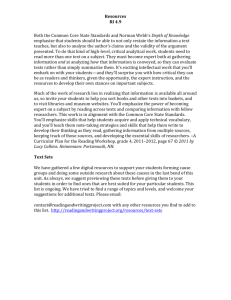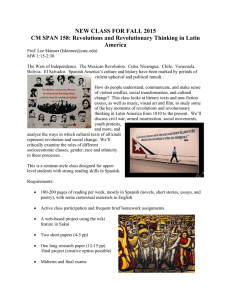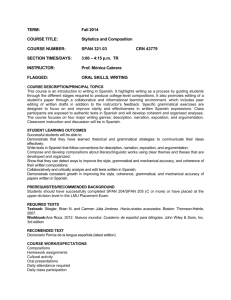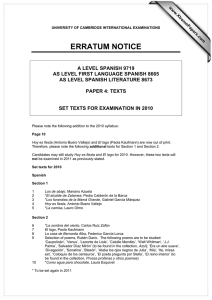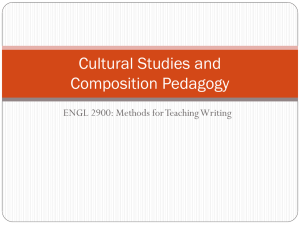Text Sets
advertisement
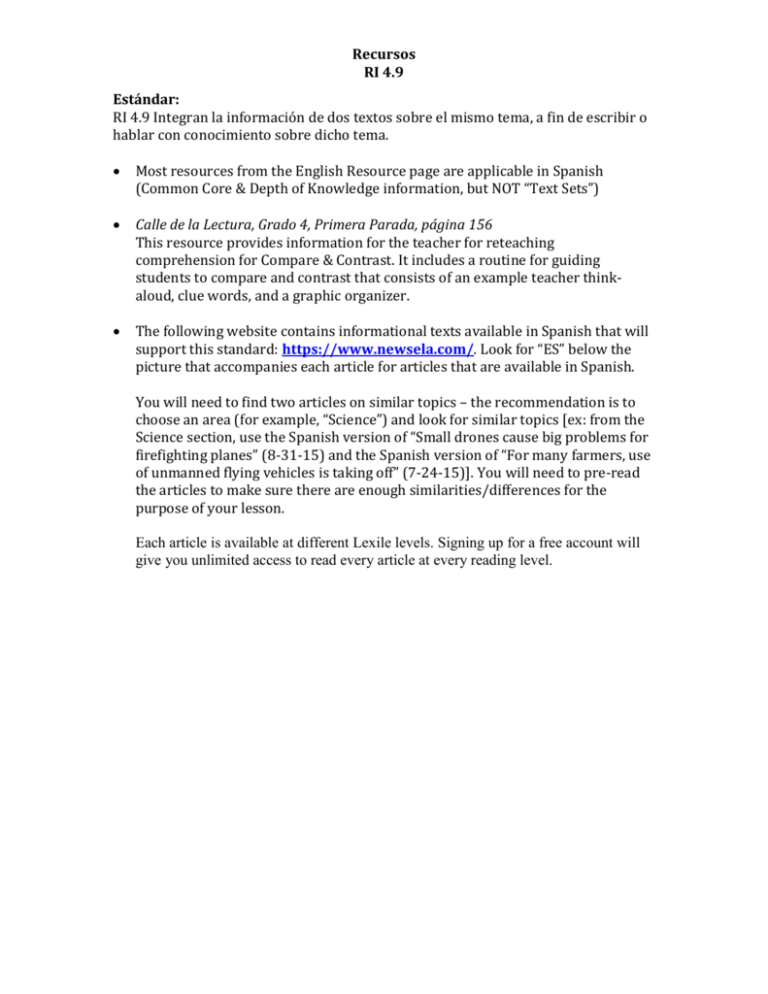
Recursos RI 4.9 Estándar: RI 4.9 Integran la información de dos textos sobre el mismo tema, a fin de escribir o hablar con conocimiento sobre dicho tema. Most resources from the English Resource page are applicable in Spanish (Common Core & Depth of Knowledge information, but NOT “Text Sets”) Calle de la Lectura, Grado 4, Primera Parada, página 156 This resource provides information for the teacher for reteaching comprehension for Compare & Contrast. It includes a routine for guiding students to compare and contrast that consists of an example teacher thinkaloud, clue words, and a graphic organizer. The following website contains informational texts available in Spanish that will support this standard: https://www.newsela.com/. Look for “ES” below the picture that accompanies each article for articles that are available in Spanish. You will need to find two articles on similar topics – the recommendation is to choose an area (for example, “Science”) and look for similar topics [ex: from the Science section, use the Spanish version of “Small drones cause big problems for firefighting planes” (8-31-15) and the Spanish version of “For many farmers, use of unmanned flying vehicles is taking off” (7-24-15)]. You will need to pre-read the articles to make sure there are enough similarities/differences for the purpose of your lesson. Each article is available at different Lexile levels. Signing up for a free account will give you unlimited access to read every article at every reading level. Recursos RI 4.9 Both the Common Core State Standards and Norman Webb’s Depth of Knowledge emphasize that students should be able to not only restate the information a text teaches, but also to analyze the author’s claims and the validity of the argument presented. To do that kind of high-level, critical analytical work, students need to read more than one text on a subject. They must become expert both at gathering information and at analyzing how that information is conveyed, so they can evaluate texts rather than simply summarize them. It’s exciting intellectual work that you’ll embark on with your students—and they’ll surprise you with how critical they can be as readers and thinkers, given the opportunity, the expert instruction, and the resources to develop their own stances on important subjects. Much of the work of research lies in realizing that information is available all around us, so invite your students to help you sort books and other texts into baskets, and to visit libraries and museum websites. You’ll emphasize the power of becoming expert on a subject by reading across texts and comparing information with fellow researchers. This work is in alignment with the Common Core State Standards. You’ll emphasize skills that help students acquire and apply technical vocabulary, and you’ll teach them note-taking strategies and skills that help them write to develop their thinking as they read, gathering information from multiple sources, keeping track of those sources, and developing the essential skills of researchers. –A Curricular Plan for the Reading Workshop, grade 4, 2011–2012, page 67 © 2011 by Lucy Calkins. Heinemann: Portsmouth, NH. Text Sets We have gathered a few digital resources to support your students forming cause groups and doing some outside research about these causes in the last bend of this unit. As always, we suggest previewing these texts before giving them to your students in order to find ones that are best suited for your particular students. This list is ongoing. We have tried to find a range of topics and levels, and welcome your suggestions for additional texts. Please email: contact@readingandwritingproject.com with any other resources you find to add to this list. http://readingandwritingproject.org/resources/text-sets
